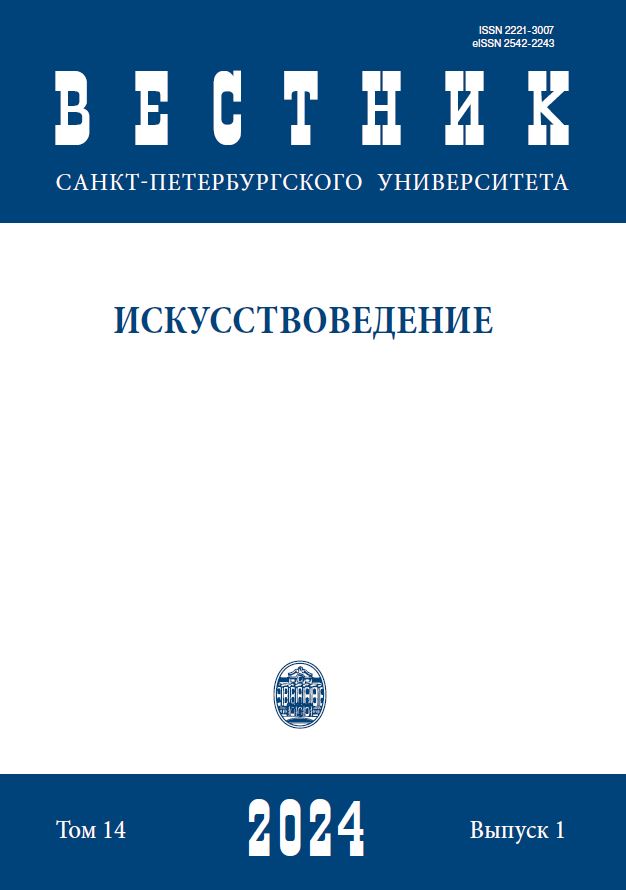Georgy Kryzhitsky as Co-founder and Theorist of the FEKS (on the Centenary of the Creative Association)
DOI:
https://doi.org/10.21638/spbu15.2024.104Abstract
The article raises the question of the role of George Kryzhitsky in the formation of the theoretical platform and the creation of the theater workshop of FEKS (“Factory of the Eccentric Actor”). For the first time in scientific practice, a comparative analysis of Kryzhitsky’s publications of 1921–1922 is undertaken: “The Theater of the Spirit of the Flesh”, “Philosophical Farce”, “Philosophical Farce. Theater on the contrary”, “Excitement” in the collection “Eccentricity — as a single corpus of theoretical texts. The basic aesthetic categories based on the principles of ancient philosophy and theater, and the dynamics of his concept of a new theater are revealed; the significance of the theoretical constructions of Kryzhitsky in the formation of the ideological and artistic principles of the eccentric theater, stated in the “Manifesto of the Eccentric Theater” (1921) and in the collection “Eccentricity” (1922). Based on the analysis of texts and historical and biographical information, the hypothesis of the influence of Kryzhitsky as the “only adult” of the FEKS on the creative worldview of his young associates (G. Kozintsev, L. Trauberg, S. Yutkevich) in the southern period of their acquaintance (1918–1920), as well as about the key role of Kryzhitsky in the Petrograd process of formation of the creative collective in late 1921 — early 1922. The split of the original core of the FEKS and further history of the relationship between Kryzhitsky and Kozintsev, Trauberg and Yutkevich, who pursued movie making, are also considered through the prism of theory — as a result of the revealed differences in the assessment of the communicative side of the creative process. The article claims that Kryzhitsky remained faithful to a “live” stage performance with a real audience, which embodies a “unified sense of theater”, and his former associates chose a virtual screen action for self-expression, that is a fundamentally different medium.
Keywords:
Russian avant-garde, eccentricity, theater, FEKS, Georgy Kryzhitsky, manifesto, author, Petrograd
Downloads
References
Downloads
Published
How to Cite
Issue
Section
License
Articles of "Vestnik of Saint Petersburg University. Arts" are open access distributed under the terms of the License Agreement with Saint Petersburg State University, which permits to the authors unrestricted distribution and self-archiving free of charge.






